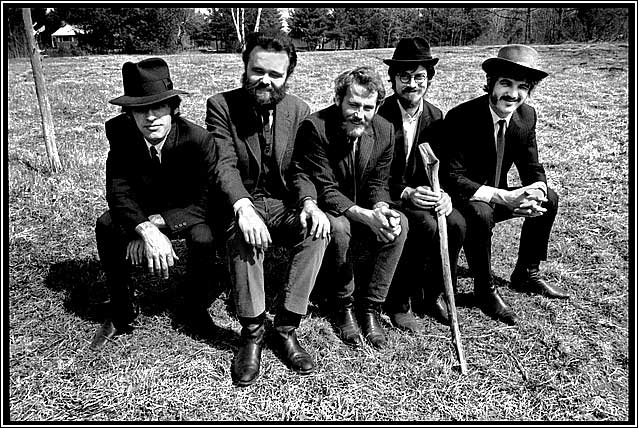
A Haunting Pilgrimage Through the Burdens We Carry and the Kindnesses We Owe
When The Band released “The Weight” in 1968 as the lead single from their seminal debut album, Music from Big Pink, it barely grazed the Top 100 on the U.S. Billboard Hot 100, peaking at a modest No. 63. Yet in the half-century since, it has transcended the ephemeral metrics of chart success to become an enduring cornerstone of American music—an enigmatic parable that echoes across genres, generations, and continents. Despite its unassuming commercial start, “The Weight” has been covered extensively, canonized into countless “greatest songs” lists, and immortalized through its inclusion in film, notably in Easy Rider (1969), where its weary soul matched the disillusioned mood of a changing nation.
At its surface, “The Weight” is a traveler’s tale—one man’s arrival in Nazareth (a nod not to biblical Judea but to Nazareth, Pennsylvania, home of Martin Guitars), carrying out a series of seemingly simple favors on behalf of friends and strangers alike. Yet these requests quickly metastasize into a surreal procession of burdens: delivering messages for friends who’ve disappeared or gone mad, caring for grotesque animals left behind by absent companions, and confronting moral quandaries thinly veiled as casual errands. The narrator moves from one character to another—Fanny, Carmen, Crazy Chester—as if wandering through a living Breughel painting populated with eccentrics on the edge of myth.
But what gives “The Weight” its aching immortality is not just its narrative collage or evocative imagery; it’s the ineffable feeling that something larger than mere storytelling is at work. Written primarily by Robbie Robertson, though every member of The Band shaped its feel and delivery, the song functions as both a moral fable and a communal lament. The lyrics draw heavily on Southern Gothic archetypes despite the group’s Canadian roots—a deliberate homage to the American South’s literary and musical traditions that infused so much of The Band’s work. In spirit and tonality, it sits beside Flannery O’Connor short stories and William Faulkner novels—where salvation is elusive and grace arrives only through pain.
Musically, it is a study in restraint. The song unfolds with sepia-toned dignity: Levon Helm’s soulful Arkansas drawl carries each line with weathered gravity; Rick Danko and Richard Manuel layer harmonies that recall gospel choirs in crumbling chapels. Garth Hudson’s organ weaves like incense smoke between Robbie Robertson’s gently plucked guitar lines. Together they conjure a sound that feels both ancient and intimate—a dirge disguised as a sing-along.
At its core, “The Weight” is about obligation—the weight we bear for others out of love, guilt, or some inscrutable sense of duty. And yet it never preaches or resolves; it simply observes. Each verse turns another corner in this dusty town of the soul where everyone seems to be coming or going but no one is truly at rest. There is no catharsis here—only acceptance that carrying another’s burden is part of being human.
In this way, “The Weight” mirrors our own private reckonings: favor upon favor asked by people we cannot refuse; emotional freight we inherit without question; journeys we begin with no clear destination but an instinct to keep moving forward. It speaks in metaphors yet cuts straight to the bone.
That such profound truths are wrapped in a song so hauntingly beautiful is why “The Weight” remains not just relevant but revelatory more than fifty years after its release—less a product of its time than an eternal reckoning set to music.